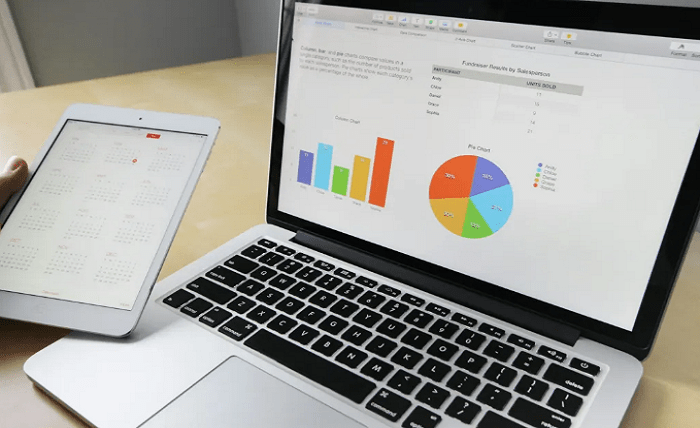In today’s interconnected world, businesses face a complex landscape marked by rapid technological advancements and shifting global markets. Expert Alfred Sollami understands that these dynamics present significant challenges and vast opportunities for growth and innovation. Learning about these factors is crucial for any organization looking to thrive in the global economy.
Current State of the Global Economy
A series of paradoxes characterize today’s global economy. On the one hand, innovation and technology have opened up new frontiers for business expansion and efficiency gains. On the other, socio-political tensions and economic disparities pose significant risks.
While the digital revolution has been a boon for many, it has also disrupted traditional industries. Understanding these trends is crucial for businesses aiming to gain a competitive edge in the current climate.
Navigating Market Volatility
In this era of unpredictability, experts at Auctus Fund Management believe that market volatility has become a hallmark of the global economy. For businesses, this means adaptability and resilience are more important than ever.
Companies must be agile and ready to pivot their strategies in response to fluctuating market conditions and consumer behaviors. Doing this may involve diversifying product lines, exploring new markets, or adopting innovative business models.
Successful navigation of these turbulent waters will require a keen understanding of market trends, a strong investment in research and development, and a proactive approach to risk management.
Business Challenges and Ideas on How to Solve Them
Navigating the modern business landscape is filled with challenges that demand innovative solutions and strategic foresight. Below, Alfred Sollami outlines some of the most common business challenges companies must overcome to secure their place in the global marketplace.
Technological Disruption
Technological disruption tops the list of challenges, with AI, machine learning, blockchain, and IoT transforming operations, consumer interactions, and business models. Companies slow to adopt these technologies risk falling behind more agile competitors, leveraging these tools for efficiency, innovation, and market insights.
Solution: Invest in technology and foster a culture of continuous learning within your organization to harness the power of technological advancements.
Changing Consumer Behavior
Consumer expectations are evolving, driven by the digital age’s instant gratification culture. Today’s consumers prioritize experiences, sustainability, and personalization, pushing companies to rethink their product and service offerings.
Solution: Implement data analytics to gain deeper insights into consumer preferences and tailor products accordingly. Engaging with consumers on social media can also yield valuable feedback.
Global Market Competition
Digital platforms have made entering global markets easier, intensifying competition. Businesses compete against local competitors and face pressure from international players looking to expand their footprint.
Solution: Focus on differentiating your brand and products. Niche marketing and maintaining high-quality standards can help carve out a strong market position.
Supply Chain Disruption
With global supply chains becoming increasingly complex, businesses are vulnerable to disruptions caused by natural disasters, political tensions, and economic shocks. These disruptions can cause significant delays, increased costs, and damage brand reputation.
Solution: Diversify suppliers and have contingency plans in place for potential disruptions. Leveraging technology like blockchain can also improve supply chain efficiency and transparency.
Access to Talent
Finding the right talent has become increasingly difficult as the digital economy requires new skills. The knowledge gap poses a significant hurdle to staying competitive and innovative.
Solution: Develop in-house training programs and partnerships with academic institutions to build the skills needed within your workforce. Embrace remote work and explore global talent pools for diverse skills.
Environmental Sustainability
Another critical challenge businesses face today is integrating environmental sustainability into their operations. The growing awareness and concern over climate change and environmental degradation demand companies to adopt more sustainable practices.
Alfred Sollami believes this shift is a matter of regulatory compliance and a strategic move to align with consumer values and future-proof businesses.
Solution: Implement sustainable practices by reducing waste, increasing energy efficiency, and sourcing materials responsibly. Investing in renewable energy and adopting circular economy principles can contribute to a more sustainable business model.
Turning Challenges Into Opportunities
While daunting, these challenges provide a fertile ground for innovation. Disruption forces companies to reassess and adapt, often leading to groundbreaking products and services.
For instance, the push towards sustainability has spurred innovations in renewable energy and eco-friendly products. Similarly, digital transformation has allowed businesses to explore new markets without needing a physical presence, reducing entry barriers and opening up a world of possibilities.
Furthermore, challenges in finding the right talent have led companies to invest in employee development, fostering a culture of innovation and loyalty. Regulatory changes, while initially burdensome, can also level the playing field, forcing companies to innovate within the confines of new frameworks and thus potentially stymieing less agile competitors.
Businesses must embrace these challenges as opportunities to drive growth, foster innovation, and remain relevant in an ever-changing global economy. By staying informed and agile, companies can overcome these hurdles and position themselves for long-term success. So don’t fear the challenges of today’s global economy—instead, embrace them as catalysts for growth and opportunity.
Final Thoughts
The global economy demands that businesses stay alert to emerging trends and challenges. However, within every challenge lies an opportunity for growth and improvement.
By adopting a flexible mindset and forward-thinking strategies, companies can not only navigate these waters but also emerge stronger, more innovative, and more competitive. The key lies in viewing each challenge not as an obstacle but as a catalyst for transformation and an opportunity to rethink and refine how business is done.



